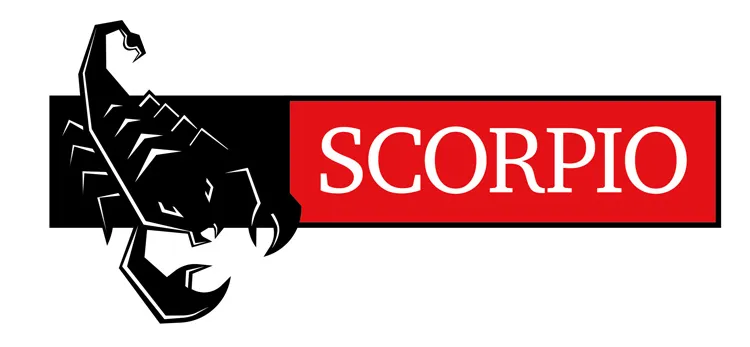The South African Revenue Service (Sars) on Friday took charge of bank accounts, premises and all other assets owned by cigarette manufacturer Gold Leaf Tobacco Corporation (GLTC) and that of its directors Simon Rudland and Ebrahim Adamjee.
This comes after Sars was granted an ex parte preservation order in the High Court in Pretoria in which a curator was appointed to look after the affairs of GLTC, Rudland and Adamjee.
Sars approached the court in secret and accused GLTC, Rudland and Adamjee of “fraudulent, intentional tax evasion” and being “obstructive”.
Based on what seems to be a multiyear probe, ace investigators said the accused did not declare more than R2,5-billion in income from illicit cigarettes for the years 2017/18, nor VAT of more than R356-million from September 2016 to July 2017.
To hide the crimes, the plunder network is accused of running a cross-border money laundering racket that leaned on bribed Sasfin banking officials to sneak over R3-billion in undeclared money mainly to Dubai, camouflage their footprints by deleting banking transactions, expedite payments, craft fake documentation and delete forex movement reports to the Reserve Bank.
Sasfin COO Rodger Dunn in March admitted to Sars that the bank’s own belated investigation “evidences deletion of transactions”. In an astonishing letter annexed to Sars court application dated 31 March 2022, Dunn admitted the bank statements for GLTC had to be reconstructed. When Dunn wrote this letter, Sasfin had not salvaged all the information.
From the controversial Rudland family of Zimbabwe described as ‘Mnangagwa’s Oligarchs’, Simon Rudland seems to be highlighted as one of the key figures in the plunder network.
https://www.dailymaverick.co.za/article/2021-06-20-new-report-makes-further-claims-about-harares-corrupt-elites-and-their-south-african-connections/
Rudland “initiated and established the protocols in relation to the remittance of funds to foreign jurisdictions” and “was directly involved in issuing instructions on behalf of GLTC…regarding how these illicit funds had to be dealt with…”, Sars investigators found.
He negotiated fees with the network’s money launderer and “mr. Rudland was at all times aware of the deposits …in the GLTC Sasfin bank accounts and the remittance of funds to foreign jurisdictions. Mr Rudland took steps to circumvent the detection of these deposits and payments from the relevant authorities, including Sars.”
The taxman’s clawback
Now Sars wants an additional R1-billion in undeclared income tax and VAT from GLTC for tax years 2017 and 2018 and VAT period of September 2016 to July 2017 respectively. Investigators told the court they have “reason to believe that GLTC, assisted by Mr Adamjee and Mr Rudland, is still involved in illicit money laundering and continues to dissipate its assets”.
“It is evident that GLTC would not hesitate to make use of any means at its disposal to frustrate the collection of tax.”
Therefore, Sars said in its court papers, investigators reopened probes into other tax years.
Due to “fraud, misrepresentation and non-disclosure of material facts” GLTC’s tax bill may rack up to R3-billion once understatement penalties and interest are added.
And because GLTC’s local assets are inadequate to pay its tax debt, Sars asked the court to allow the revenue service to grab Rudland and Adamjee’s assets as well.
To convince the judge, Sars further revealed that in April this year it received another ex parte order to convene a tax inquiry in terms of s50(1) of the Tax Administration Act. Tax inquiries are traditionally highly secretive affairs and somewhat draconian, usually compelling taxpayers to reveal all. The public is rarely informed about information from these proceedings, or even that they are happening. Rudland, being one of the respondents, has been fighting like a tiger in this tax inquiry to keep eyes off his international assets and money flows, Sars revealed. The newly appointed curator will now start investigating Rudland’s international assets, at the same time as Rudland fights in court to block any such revelations.
Visit Daily Maverick's home page for more news, analysis and investigations
Investigators reveal that for years, the plunder network mainly worked to sneak billions of undeclared rands out of the country – in effect impoverishing South Africa.

The second goal was born from necessity, Sars said: to hide the massive cash problem created by the sale of illicit cigarettes.
Measured in cash received per year, GLTC’s illicit business seemed to have eclipsed its legitimate annual earnings.
GLTC’s annual financial statements show, for example, that their legitimate declared business earned R1,5-billion and R1,8-billion in revenue for 2017 and 2018 respectively. The illicit arm of GLTC’s business, investigators found, received just more than R3-billion in illicit cigarette cash during the 16 months from August 2016 to November 2017.
There is a very real risk, investigators argued, that Rudland and Adamjee would try to spirit away their assets if they were to know the depth and breadth of the trouble they were in. Hence the secret ex parte court application.
Judge AJ Strijdom in the High Court of Pretoria agreed and signed the order on Wednesday this week. GLTC, Rudland and Adamjee has until early November to convince the court that Sars is wrong.
The defence: Play dead
Rudland and Adamjee told the tax inquiry they had done nothing wrong and declared all GLTC’s taxes to Sars.
GLTC deposited only a total of R162,7-million into its Sasfin accounts between 2016 and 2017, they say, and “any amount beyond this was not GLTC’s money”.
Where there is more money flowing into GLTC than what was declared, they claim to know nothing about it.
Where there was manipulation of its Sasfin bank account, Rudland and Adamjee were “not a party to it and it was not aware thereof”.
In fact, they argue GLTC’s accounts have been “hijacked” by Mohammed Khan from SALT Asset Management, appointed as GLTC’s intermediary with Sasfin.
Khan, Adamjee would have Sars know, went on his own frolic, corrupted Sasfin officials and abused his access to GLTC’s accounts for his sole benefit.
In late 2020, Sars slapped Khan and 30 other people and companies with a similar ex parte application.
Reading Khan’s WhatsApp conversations with Rudland and his confidantes convinced investigators there was more to be uncovered.
In May this year, GLTC gave Sars a pile of documents that included a schedule of “authorised payments”. Just to prove that they kept a book of “legitimate transactions” and that they know nothing of the R3-billion washing through their accounts.
It didn’t work out well, Sars investigators told the court.
“Sars analysed the records and identified various discrepancies concerning the ‘authorised payments’ made by GLTC in relation to certain of its suppliers.”

The ‘proof’ lacked supporting source documentation, quantities of tobacco recorded in the documentation do not match the customs amounts and weights declared to Sars and, in other instances, Sars could not find records of the payments allegedly made to suppliers.
Apart from the actual numbers not making sense, a gaping hole in GLTC’s defence is this:
If we accept their version that Khan “hijacked” GLTC’s accounts and that Rudland and Adamjee knew nothing about the R3-billion moved through their accounts, mainly to Dubai, one would not expect the “hijacked” payments to flow to one of Rudland’s close business partners.
Yet, Sars says evidence suggests that more than R2,2-billion – the bulk of the R3-billion loot – flowed to a Dubai-based company named Aulion Global Trading, whose sole director is Rudland’s friend and business partner, Howard Baker. The same Baker who Sars now says has “for all intents and purposes disappeared”.
Rudland, Baker and lawyer Raees Saint have been the focus of long-term suspicion, as detailed here by amaBhungane.
The Rudlands consistently make the news as members of the powerful political and economic elite in Zimbabwe, propping up Zanu-PF.
https://www.dailymaverick.co.za/article/2022-02-07-mnangagwas-oligarchs-the-heirs-of-cecil-rhodes/
Their recent moves to grab hold of sugar multinational Tongaat Hulett this year again thrust them into the spotlight. What seems to have been an uneasy relationship with the truth has in the end kneecapped the family’s Tongaat Hulett deal, although this seems to be everyone’s fault but their own, as described here by Financial Mail’s Rob Rose.
How does it all fit together: The mechanics of the plunder network
Based on public information and the current set of court documents, it seems as if Sars’ ace investigators have quietly started to dismantle GLTC’s transnational plunder network since 2020 as investigators probed and clawed back staggering amounts of taxes from tobacco smugglers, money launderers, bankers, cash-in-transit companies, gold dealers, clearing agents and refineries.
GLTC is one line of inquiry in Sars and SARB’s broad illicit tobacco, gold, tax evasion and forex transgression investigations, Sars commissioner Edward Kieswetter said in a press release on Friday, announcing the successful preservation order.
Several key roleplayers, including money launderer Mohammed Khan, Rudland’s business partner Howard Baker and cash-in-transit company owners Kalandra Viljoen of AMFS and Christo Janse van Rensburg of Rens Kontant in Transito, have had their assets frozen and forfeited to the state.
Others, such as Sasfin bank, woke up with Sars officials trawling through their confidential documents, bank statements and officials’ private conversations on the back of search-and-seizure orders.
With each step, Sars built the puzzle of how the illicit tobacco, gold and cash enterprises operate in mutual symbiosis, investigators said in court documents.
Sars pieced together that GLTC has, on the one hand, a legal business generating revenue of about R2-billion every year. On the other, GLTC operates an off-book enterprise based on manufacturing and selling illicit tobacco which eclipse the earnings of its legal business.
“No or insufficient taxes are therefore paid on the income generated from these illegal activities,” investigators told the court.
Within minutes after Sars announced the successful preservation order, Yusuf Abramjee from cigarette lobby group Tax Justice SA (TJSA) sent out a press release calling it a “watershed moment in the battle against organised crime groups… for over a decade, GLTC have been the prime suspects as South Africa’s illegal cigarette trade has grown into a national menace of devastating proportions.”
Abramjee and TJSA are themselves in an opposing but equally suspicious cigarette camp to that of the Rudlands.
Tensions between tobacco groups regularly boil over. In one such instance, Rudland was shot when he attended a meeting of Fair Trade Independent Tobacco Association (FITA) in August 2019.
Rudland, Adamjee and GLTC was in 2019 already under public suspicion. DM/Scorpio






